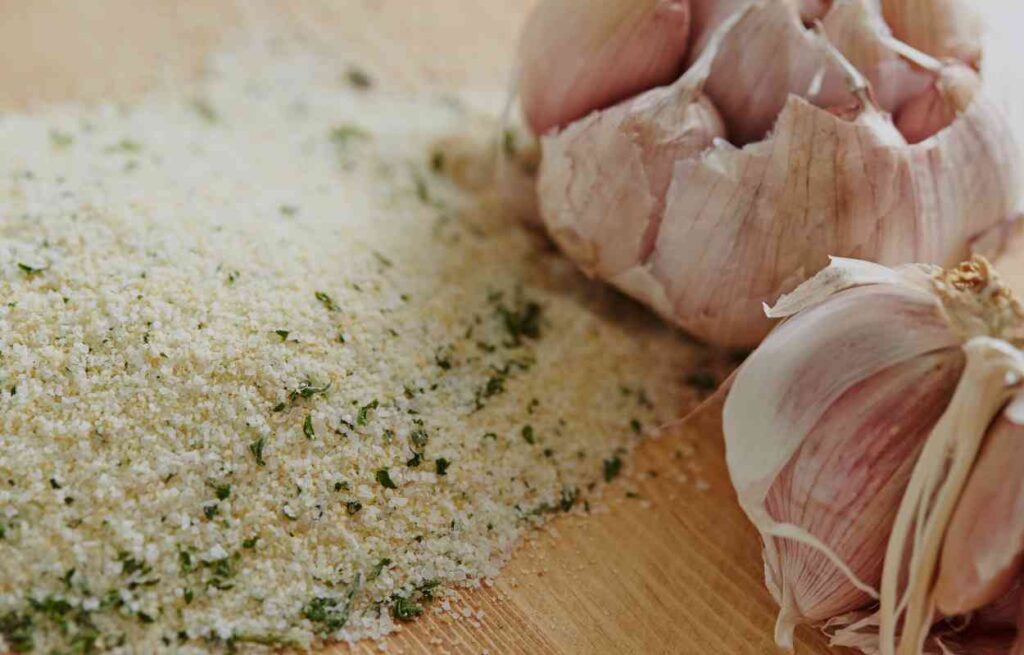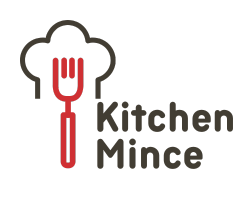Is Garlic Salt Gluten Free?
Are you a fan of adding a little extra flavor to your dishes? If so, you’ve likely come across the versatile and aromatic seasoning known as garlic salt. But if you follow a gluten-free diet, you may have found yourself wondering if this popular condiment is safe for consumption.
Is Garlic Salt Gluten Free? Garlic salt is generally considered gluten-free as it consists of a blend of salt and garlic powder, both of which do not contain gluten. However, it is essential to carefully examine the ingredient label as some brands might incorporate gluten-containing ingredients.
To ensure gluten-free status, look for certified gluten-free labels or contact the manufacturer for clarification. Awareness of potential cross-contamination is also crucial for individuals following a gluten-free diet. Opting for “gluten-free certified” garlic salt can guarantee its production in a dedicated gluten-free facility.

Understanding Gluten and Its Sources
Gluten is a protein found in grains such as wheat, barley, and rye. It provides elasticity to dough, giving bread and other baked goods their structure and chewiness.
For individuals with celiac disease or gluten sensitivity, consuming gluten can lead to a range of symptoms, including bloating, diarrhea, and abdominal pain. Therefore, it is crucial for them to avoid gluten-containing foods and ingredients.
Common Misconceptions About Gluten-free Products
There are many misconceptions surrounding gluten-free products, with some people believing that they are healthier or more nutritious than their gluten-containing counterparts.
While it’s true that gluten-free diets are necessary for individuals with specific medical conditions, there is no evidence to suggest that a gluten-free diet is inherently healthier for the general population.
In fact, some gluten-free products may be higher in sugar, fat, and calories compared to their gluten-containing counterparts.
Is Garlic Salt Naturally Gluten-free?
Garlic salt is primarily made by combining dried garlic powder with salt. Both garlic and salt are naturally gluten-free, which means that garlic salt should also be gluten-free. However, it’s important to note that not all garlic salt brands or varieties are created equal.
Some manufacturers may add additional ingredients to their garlic salt, such as anti-caking agents or flavor enhancers, which could potentially contain gluten.
Therefore, it’s essential to read the ingredient list and look for any gluten-containing ingredients before purchasing garlic salt.
Factors to Consider When Purchasing Garlic Salt
When choosing a garlic salt brand, there are a few factors to consider to ensure that it is gluten-free. First, look for a reputable brand that clearly labels its products as gluten-free.
This indicates that the manufacturer has taken steps to prevent cross-contamination during production. Additionally, opt for garlic salt that is certified gluten-free by a trusted third-party organization.
Also, this certification provides an extra level of assurance that the product meets strict gluten-free standards.
Reading Food Labels for Gluten Content
To determine if a particular garlic salt brand contains gluten, it’s important to carefully read the food label. Look for any ingredients that are derived from gluten-containing grains, such as wheat, barley, or rye.
Common gluten-containing ingredients to watch out for include wheat flour, maltodextrin, and malt vinegar. If any of these ingredients are listed, it’s best to avoid that particular brand of garlic salt to prevent any potential gluten-related reactions.
Cross-contamination Risks and Precautions
Even if a garlic salt brand claims to be gluten-free, there is still a risk of cross-contamination during the manufacturing process.
Cross-contamination can occur when gluten-containing ingredients are processed in the same facility as gluten-free products, leading to trace amounts of gluten in the final product.
To minimize this risk, look for garlic salt brands that follow strict manufacturing practices to prevent cross-contamination, such as using dedicated gluten-free production lines or conducting regular testing for gluten presence.
Gluten-free Alternatives to Garlic Salt
If you are unable to find a gluten-free garlic salt brand or prefer to err on the side of caution, there are several gluten-free alternatives that can still add a similar flavor profile to your dishes.
One option is to use fresh garlic and salt separately. Finely mince fresh garlic cloves and combine them with salt to create your own garlic salt. Another alternative is to use garlic powder and salt separately, adjusting the ratios to achieve the desired flavor intensity.
Additionally, various herbs and spices can be used to enhance the flavor of your dishes without the need for garlic salt.
Cooking and Seasoning Tips for a Gluten-free Diet
When following a gluten-free diet, it’s important to be mindful of the ingredients you use in your cooking and seasoning. Here are a few tips to help you navigate the kitchen:
- Choose naturally gluten-free ingredients: Opt for fresh fruits, vegetables, lean meats, and gluten-free grains such as rice, quinoa, and corn.
- Read food labels: Always read the ingredient list and look for any potential sources of gluten in packaged products. Look for “gluten-free” labels or certifications for added assurance.
- Use gluten-free seasonings: In addition to garlic salt, there are many gluten-free seasonings available, including herbs, spices, and blends. Experiment with different flavors to enhance the taste of your dishes.
- Be cautious when dining out: When eating out, communicate your dietary restrictions to the restaurant staff and ask about their gluten-free options. Avoid cross-contamination by requesting separate utensils and cooking surfaces.
Conclusion: Making Informed Choices About Garlic Salt and Gluten
Garlic salt is generally considered to be gluten-free, as long as there are no additional gluten-containing ingredients or cross-contamination risks. However, it’s crucial to carefully read food labels and choose reputable brands that clearly label their products as gluten-free.
If you have celiac disease or gluten sensitivity, it’s always best to consult with a healthcare professional or registered dietitian to ensure that garlic salt is safe for your specific dietary needs.
By making informed choices and being aware of potential risks, you can enjoy the flavor and versatility of garlic salt while maintaining a gluten-free lifestyle. So go ahead and add a sprinkle of garlic salt to your next culinary creation with confidence!
Contents
- Understanding Gluten and Its Sources
- Common Misconceptions About Gluten-free Products
- Is Garlic Salt Naturally Gluten-free?
- Factors to Consider When Purchasing Garlic Salt
- Reading Food Labels for Gluten Content
- Cross-contamination Risks and Precautions
- Gluten-free Alternatives to Garlic Salt
- Cooking and Seasoning Tips for a Gluten-free Diet
- Conclusion: Making Informed Choices About Garlic Salt and Gluten
